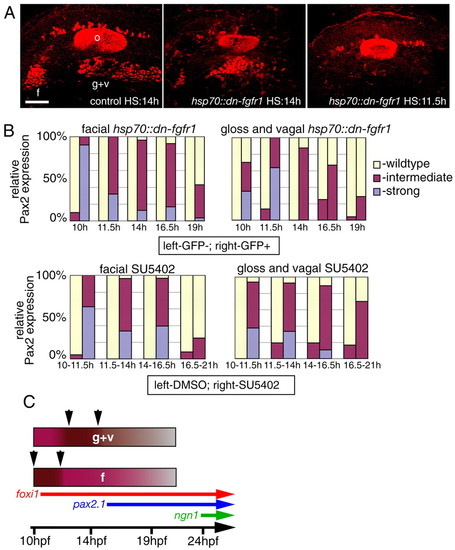|
Temporal requirement for FGF signaling. (A,B) Wild-type embryos were incubated for 1.5-4.5 hours in SU5402 starting at 10, 11.5, 14 and 16.5 hpf (DMSO-treated embryos were used as controls); heterozygous hsp70::dn-fgfr1 fish were crossed to wild type and their progeny was heat shocked at the same time points (GFP-negative embryos were used as controls). In both cases, resulting embryos (6-14 per each time point) were analyzed using Pax2 antibody at 24 hpf and scored for either presence (A, left), reduction (A, middle), or absence (A, right) of the facial (B, left) and glossopharyngeal and vagal (B, right) placodes. (C) Summary of the data in (B). Note that Fgf signaling is strongly required between 10 and 11.5 hpf in the facial placode (f, arrows) and between 11.5 and 14 hpf in the glossopharyngeal and vagal placodes (g+v, arrows), implying that the EB placodes are formed in a rostral to caudal sequence. Scale bars: 50 μm. Abbreviations are as in Fig. 1.
|

